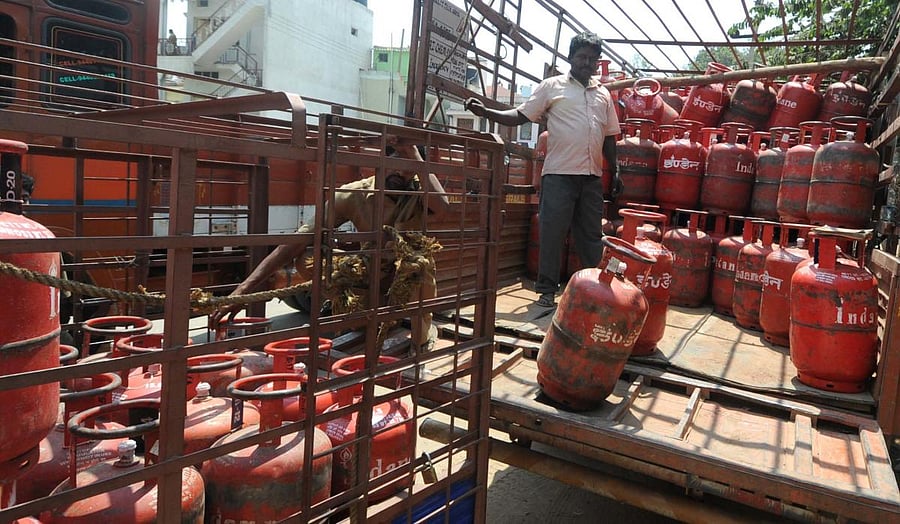
The price hike will force many LPG users in the low-income group to reduce usage or revert to unclean fuels such as wood and coal.
DH File photo
The Union government has decided to increase the price of Liquefied Petroleum Gas (LPG) by Rs 50 per 14.2-kg cylinder when the global price of crude has plunged to a recent low of $62 per barrel, down from $78 six months ago. Even the beneficiaries of the Pradhan Mantri Ujjwala Yojana (PMUY) will now pay the increased price – there is no distinction between those who can afford to pay and those who cannot. Many consumers who are considered to be in a position to afford price increases may also find it difficult to cope with them. The prices of all essential commodities, including food items and medicines, have increased over the last few months. The burden will increase with the rise in LPG prices.
The price hike will force many LPG users in the low-income group to reduce usage or revert to unclean fuels such as wood and coal. The shift, while triggering health concerns, will also set back efforts to promote clean cooking practices. The use of LPG by PMUY beneficiaries has increasingly come down as many families are finding the price too high. Union Petroleum Minister Hardeep Singh Puri has stated that the price hike is part of periodic reviews conducted to align with global fuel market trends and offset rising import costs. India imports more than 60% of its domestic LPG consumption. The state has the responsibility to ensure the availability of essential commodities for common people and the weaker sections at affordable prices, and periodic price increases go against this objective. At the same time, governments are doling out freebies for political and electoral reasons without a thought about how resources can be found for such spending.
The government has also increased the excise duty on petrol and diesel by Rs 2 each. The minister said that the increase would not be passed on to the consumer as it is not directed at burdening them but intended to help offset a Rs-41,338 crore loss incurred by oil marketing companies. The pricing policy for petroleum and its products is still erratic. It is not based on the market situation or on welfare ideas around people’s needs or their ability to pay. When international crude prices fall, there is no corresponding reduction in prices in the country. But it needs to be noted that the prices were reduced in March 2024 with an eye on the general elections. It should not be politics but economics, environmental concerns, or the welfare of the people that should decide the prices of commodities such as petrol and diesel.
